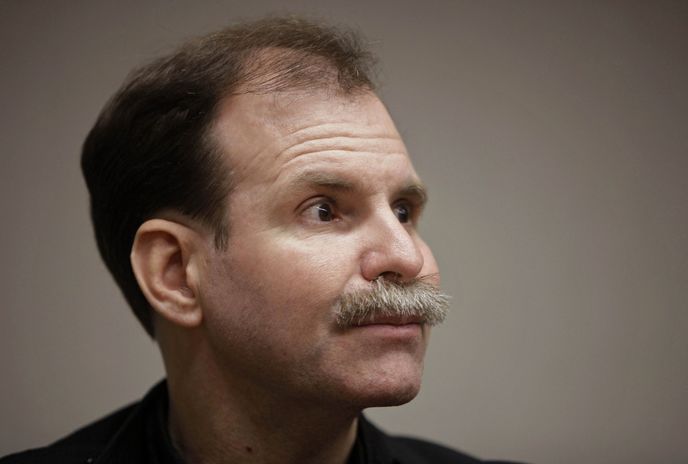This photograph is altogether commonplace. A simple headshot of an altogether ordinary, middle-aged, white guy. He looks healthy. His face is washed, his hair and mustache neatly trimmed. He is what we might call “clean cut.” If you passed him on a street corner you probably would not give him a second glance. There is something of an irony to this last statement, but more on that later.
His name is Daniel Fore. He is a resident of Oak Park Village, a quiet suburb on Chicago’s west side famous for the many houses and other structures built by its number one son Frank Lloyd Wright. Oak Park Village considers itself to be a small and friendly community fully committed to social and political diversity. Indeed, Oak Park Village is so committed to diversity that in 1973 it issued a “diversity statement” that is now prominently featured in a sidebar on its website. That statement reads, in part:
“The people of Oak Park choose this community, not just as a place to live, but as a way of life … Ours is a dynamic community that encourages the contributions of all citizens, regardless of race, gender, age, ethnicity, sexual orientation, disability, religion, economic status, political affiliation or any of the other distinguishing characteristics that all too often divide people in society. . . . Oak Park recognizes that a free, open, and inclusive community is achieved through full and broad participation of all its citizenry. We believe the best decisions are made when everyone is represented in decision-making and power is shared collectively. Oak Park is uniquely equipped to accomplish these objectives, because we affirm all people as members of the human family (emphasis added).”
But back to Daniel Fore, the ordinary guy in the picture above—the guy who doesn’t appear to warrant a second look. He has been living in Oak Park Village for at least the past twelve years, where he has regularly attended Village board meetings and is recognizable around the town as a community activist. All of that turns out to be irrelevant, however, as his recent petition to run for the Oak Park Village Board (signed by 800 members of the community) was challenged because he listed his residence as “homeless” and the only address he gave was an Oak Park PO Box. The challenge was upheld by a Cook County judge because he did not list a “home address” on his nomination application. (Aside: The irony here is much too rich to ignore given the tales—perhaps apocryphal—of the numerous deceased voters on the Cook County voting rolls who nevertheless cast ballots in elections throughout the 1960s; of course, one can only assume that these voters did have home addresses).
The Court’s ruling is under appeal, but the point to note is that the commitment to a “free, open, and inclusive community” where “the best decisions are made when everyone is represented in decision-making and power is shared collectively” apparently doesn’t extend to the homeless who have been summarily excluded from the “human family.” And the exclusion is doubly ironic, for just as we (shamelessly) avert our eyes from the homeless we encounter sleeping in alleys or panhandling on street corners, refusing to give them a second glance, so too now have the courts and our laws looked away. As the unemployment rolls rise and as the number of house foreclosures add to what seems to be a growing “class” of homeless people—many, if not most who will look and be no more or less ordinary than Daniel Fore—one wonders how long we can continue to do that and lay claim to being a truly democratic society.
Photo Credit: M. Spencer Green/AP in the Washington Post

Discussion